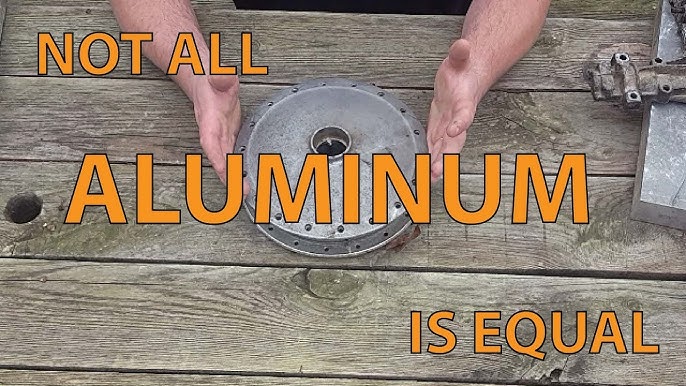Rumored Buzz on Alcast Company
Rumored Buzz on Alcast Company
Blog Article
The Definitive Guide for Alcast Company
Table of ContentsSome Ideas on Alcast Company You Need To KnowThe smart Trick of Alcast Company That Nobody is DiscussingAlcast Company Fundamentals ExplainedThe 9-Minute Rule for Alcast CompanyExcitement About Alcast CompanyUnknown Facts About Alcast Company
Chemical Comparison of Cast Aluminum Alloys Silicon promotes castability by lowering the alloy's melting temperature level and improving fluidity throughout casting. In addition, silicon contributes to the alloy's strength and wear resistance, making it important in applications where sturdiness is vital, such as automobile components and engine parts.It additionally boosts the machinability of the alloy, making it less complicated to refine into finished items. By doing this, iron adds to the general workability of aluminum alloys. Copper increases electric conductivity, making it helpful in electrical applications. It also boosts deterioration resistance and adds to the alloy's overall strength.
Manganese contributes to the stamina of aluminum alloys and enhances workability. Magnesium is a light-weight element that supplies strength and effect resistance to aluminum alloys.
All About Alcast Company
Zinc enhances the castability of aluminum alloys and helps control the solidification process during spreading. It boosts the alloy's toughness and solidity.

The main thermal conductivity, tensile stamina, return stamina, and elongation differ. Amongst the above alloys, A356 has the highest thermal conductivity, and A380 and ADC12 have the lowest.
Not known Factual Statements About Alcast Company

In accuracy casting, 6063 is appropriate for applications where detailed geometries and premium surface area finishes are critical. Instances consist of telecommunication enclosures, where the alloy's exceptional formability permits streamlined and aesthetically pleasing styles while preserving architectural honesty. Similarly, in the Illumination Solutions sector, precision-cast 6063 parts create stylish and effective lights components that require complex forms and excellent thermal performance.
The A360 shows superior elongation, making it optimal for complex and thin-walled parts. In accuracy spreading applications, A360 is appropriate for industries such as Consumer Electronic Devices, Telecommunication, and Power Devices.
Fascination About Alcast Company
Its unique properties make A360 a valuable choice for accuracy spreading in these sectors, improving item sturdiness and top quality. Aluminum alloy 380, or A380, is an extensively made use of casting alloy with numerous distinctive characteristics. It supplies exceptional castability, making it an excellent choice for accuracy casting. A380 shows excellent fluidness when molten, guaranteeing complex and thorough molds are precisely recreated.
In accuracy casting, light weight aluminum 413 radiates in the Consumer Electronic Devices and Power Tools industries. This alloy's premium corrosion resistance makes it an excellent selection for exterior applications, making sure lasting, resilient items in the pointed out industries.
Alcast Company Fundamentals Explained
When you have determined that the light weight aluminum die casting process is ideal for your project, an essential following action is choosing on one of the most appropriate alloy. The aluminum alloy you select will considerably impact both the casting process and the buildings of the final item. Because of this, you need to make your choice carefully and take an enlightened approach.
Determining the most appropriate aluminum alloy for your application will mean weighing a broad range of qualities. These comparative alloy attributes comply with the North American Die Casting Association's guidelines, and we've divided them into 2 classifications. The first category addresses alloy characteristics that affect the production procedure. check my blog The second covers features impacting the buildings of the last item.
Alcast Company for Beginners
The alloy you choose for die spreading directly impacts several elements of the spreading process, like just how easy the alloy is to function with and if it is prone to casting problems. Warm breaking, additionally called solidification fracturing, is a regular die casting defect for light weight aluminum alloys that can result in interior or surface-level rips or splits.
Specific aluminum alloys are extra prone to warm breaking than others, and your option ought to consider this. Another common flaw located in the die casting of aluminum is die soldering, which is when the actors sticks to the die walls and makes ejection challenging. It can harm both the actors and the die, so you need to look for alloys with high anti-soldering homes.
Deterioration resistance, which is currently a noteworthy quality of light weight aluminum, can differ significantly from alloy to alloy and is an essential characteristic to consider relying on the ecological problems your item will certainly be subjected to (Foundry). Wear resistance is another home frequently sought in aluminum items and can set apart some alloys
Report this page